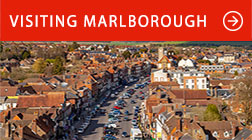
Alan Hollinghurst, the award winning author, poet, short story writer, editor and translator, was this year’s Golding Speaker on Friday September 26th. He was knighted in the New Year’s Honours list for services to literature, and his seventh novel, Our Evenings has been described as “the finest novel yet from one of the great writers of our time” (The Guardian). In conversation with journalist and broadcaster Alex Clark, Hollinghurst explored and revealed what led him to write the novel which covers seven decades of the central character’s life from the 1960’s to the pandemic.

Our Evenings focuses on the character of David Win, who gives us a first person account of growing up as a gay Anglo-Burmese man, an outsider in the small English town and at the expensive school where he wins a scholarship. Oxford follows and then the life of an actor. Hollinghurst explores race, class, theatre, sexuality, the bond between mother and son. Elements of the novel are written in the English social comedy tradition and humour is derived from the absurdity of class. “I’ve always enjoyed writing about rich people and their thoughtlessness about people less well off than themselves.”
Hollinghurst commented, “As I get older I’m preoccupied with looking back and although David Win is a few years older than me, he’s lived through the same time frame… Burmese doesn’t have a strong imprint in British culture so it allowed the exploration of a different racial perspective in a subtle way.”
Hollinghurst’s mother died aged 97, just prior to Hollinghurst starting the novel. She had been widowed for 35 years and he was her only son. Hollinghurst commented, “I also wanted to pay homage to a mother and the bond between a gay son and his mother.”
In common with many of his other novels, Hollinghurst uses two time frames in Our Evenings – David’s education and then his life as an actor. The reader is thus invited to work on the narrative of what happened in between these two time frames. “I hope this makes the novel pleasurable, intriguing and entertaining but also creates shocks and little surprises that disrupt the formula that the reader is led to expect.”
It takes Hollinghurst seven years to write a novel. He accumulates material in notebooks and writes descriptions, “bits and bobs, relationships… When it is sufficiently solid I begin writing but only 300-400 words in a day. I try to get it right the first time. I always have the end of the book in mind before starting the writing.”
Hollinghurst decided on the title, Our Evenings, before writing the novel. “I like a title which takes a while to reveal itself. It is beautiful and mysterious and suggests a picture of domestic life (David listens to Janáček) and of course actors spend every evening at the theatre which is the opposite of domesticity. It has a pleasingly commodious, elegiac feel.”
Alan Hollinghurst is the author of six previous novels, The Swimming-Pool Library, The Folding Star, The Spell, The Line of Beauty, The Stranger’s Child and The Sparsholt Affair. He has received the Somerset Maugham Award, the James Tait Black Memorial Prize for Fiction and the 2004 Man Booker Prize. A play based on The Line of Beauty will open at the Almeida Theatre, London next month.
Marlborough LitFest hosts an annual Golding Speaker to highlight the town’s long connection with the Nobel Laureate and Booker Prize winner, William Golding. The event is sponsored by William Golding Limited. Past Golding Speakers include Linda Grant, Sebastian Barry, Ali Smith, Elif Shafak, Ben Okri, Rose Tremain, Will Self, Lionel Shriver, Louis de Bernieres, Fay Weldon and Howard Jacobson.






 LitFest ’25: Valentine Low – ‘Power and the Palace’
LitFest ’25: Valentine Low – ‘Power and the Palace’

